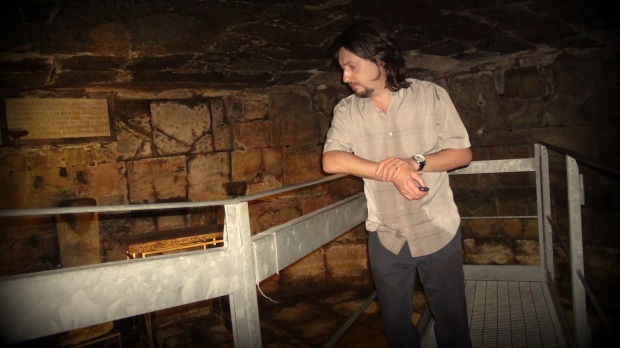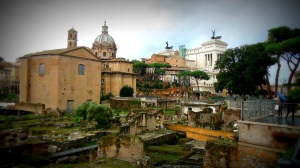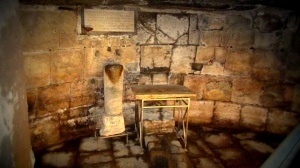Archive for December, 2014
Jesus out of focus and Christmas with Christ
Posted by simon peter sutherland in Christianity, Issues with Christianity in England today on December 23, 2014
I greatly admire Christmas and it is at this season of the rolling year that I have a few traditions of my own. One such tradition I have is my reading of ‘A Christmas Carol’ by Charles Dickens.
First published in 1843 after a visit to Manchester, Dickens clearly wrote the book with the aim of reforming the festival that was starting to fade. I think he did a good job of it. His term “humbug” was a masterly description. The problem is, Scrooge was in fact correct, Christmas was a “humbug”. A 19th century definition means ‘fraud’.
In the 21st century, Christmas is in fact a time for paying bills, acquiring heavy debts and a time where people indulge in constant spending, socialising, gluttony and alcoholism in an industrious commercial institution that focuses upon materialism and not the person of Jesus Christ. In that context Scrooge was correct; ‘Christmas sir is a humbug’.
But for me and many Christians, Christmas is not merely a time for gaining material or spending, and I certainly do not drink alcohol or indulge in gluttony. Christmas for me, is a time for remembering the birth of the Lord Jesus Christ and in that, Christmas is with me 365 days a year.
However, despite the fact that a secular Christmas has little to do with Jesus Christ, there is little doubt in my mind that many people today, Religious and none Religious would seek to abolish Christmas, and replace it with something else or nothing. In many ways, secularist culture has done just that, it has abolished the true historical meaning of Christmas.
Likewise, the use of the abbreviation “X” rather than “Christ” can be argued that the secularists have used a historic meaning. The letter “X” is from the Greek “Χριστός” which means Christ. The problem is that the majority of people, especially the secularists or average soul, has little or no knowledge of the Greek language, so “X” to them is just a letter.
Secularism has turned Christmas away from a festival where people celebrate and remember the birth of Jesus and turned it into a time of worldliness and sin and selfish gain. People are celebrating the sins that Jesus came to set us free from.
In the year 1647, the Puritan government in England banned Christmas and regarded it as little more than a snare of “Antichrist” and “Popery”. But today in the 21st century it is difficult to connect Christmas with the Roman Catholic Church or even as a Religious festival. We all know that for many people in the West, particularly in Britain, Christmas has little to do with the Lord Jesus Christ.
But for me as a Christian, the season is very much related to our Lord Jesus. He is everything! And even though we do not know the exact date or year when Jesus was born, we do know that the early Church made the decision to celebrate His birth at this time of year.
Because of a 4th century reference to Christmas in the calendar of 354 AD, we know that early Christians at Rome regarded the Nativity to have taken place on 25th December. However, Christians in the East celebrated the Messiahs birth on January 6th.
Moving forward in history toward the Protestant Reformation, I would think that no accurate case can be established to claim the 16th century Reformers denied Christmas. It is true that governmental 17th century English Puritans banned Christmas, but such was not the case with the 16th century Reformers. The facts remain that 16th century Lutheran, and Church of England Reformers continued to celebrate Christmas: that point is clear from history and the Book of Common Prayer.
Christmas reminds me in many ways of the Jewish season of Hanukkah, recorded by Jewish historian Josephus as “The festival of lights” (Antiquities X11) In this festival the Jewish people commemorate the establishing or rededication of the Holy Temple, and is an eight day holiday which starts on the 25th day of kislev. This can occur from late November to late December. Concluding for many on what we call ‘Christmas eve’.
It is clear to me that the things which Jewish people celebrate in Hanukkah were fulfilled in the life, death, burial and resurrection of Jesus Christ. I see that in and through Jesus, Judaism is made whole. Without Him I see little conclusion or fulfilment of the Torah and the Prophets. Not only is Jesus the “Light of the world” and not only has did He fulfil the prophecies but He has rededicated the Temple and purified it in His people. And if one desires to see Jesus in this, a good place to start would be throughout the Gospel of John, where Jesus is at the Feast of dedication during winter (John 10: 22-23) and also the book of Hebrews.
I think Christmas has been hijacked by secular culture and I think that unless peoples hearts and minds are won over to the Truth, there is little that can be done about that. Christmas for secularists merely implies faith, hope and gluttony:
- Faith in “Evolution”.
- Hope in “Science”.
- Indulgence in the flesh.
A person cannot honestly take Christ out of Christmas and continue to celebrate the festival as though He never was who He said He was, it is intellectually dishonest. And as for the mess that the world makes of Christmas, should we really expect anything else? The world would turn every celebration into a hotchpotch of drunkenness and fleshly pursuits, and entertainment. So what more can we expect? It is up to each one of us to be different, because we are different. We are not of this world, if we belong to Christ. Thus, it is up to us to know and understand what we believe and it is up to us to show the people of the world the historic Truth behind the Christmas many know and love.
Many Christians are speaking out for the Truth, but far too many Christians in Britain desperately need to start speaking out!
Visit to Rome: The Mamertine Prison
Posted by simon peter sutherland in Biblical archaeology on December 1, 2014
Visiting ancient Biblical sites in the Mediterranean is always an experience for me and is something I find second to none. Although I like some of the wonders of modernity, I regard our present world as unappealing, noisy and somewhat shallow. Because of that, I prefer history rather than the present
Last month, I travelled to Rome, the ancient and modern city known for being somewhat of an open air museum. Being a history fanatic myself and absolutely intrigued by the Bible, as always I was in inner rapture.
During the afternoon of the first day I visited the ancient area of the Forum leading to a place known as “Mamertinum”or the Mamertine Prison. This ancient prison is within a stones throw of the ancient forum, a Comitium which once felt the feet of the Apostles Peter and Paul and also of Luke and of Aquila and Priscilla.
The Gospel of Luke and Acts of the Apostles were probably written while Luke was in Rome. We also know that Luke was with Paul during his time in prison. This is understood from 2 Timothy 4: 11.
The Mamertine prison, known historically as the “Tullianum”, was probably constructed between 640-616 BC and was likely a cistern. The amazing thing for me was that scripture was written from this damp dark cell.
In 2 Timothy 1: 16 Paul referred to his “chain” this chain now resides at ‘St Paul outside the walls’ which was build on his ancient tomb. Writing from the Mamertine, in 2 Timothy 2: 7-9 Paul wrote: “Consider what I say; and the Lord give thee understanding in all things. Remember that Jesus Christ of the seed of David was raised from the dead according to my gospel: Wherein I suffer trouble, as an evil doer, even unto bonds; but the word of God is not bound.”
On entry down the stairs to the upper level of the complex, I saw ancient Frescos. These can be found on the walls and show Christians depicted with the arms and hands held out. Over recent years Archaeologists have uncovered evidence that have connections to St Peter as early as 7th century. The evidence also suggesting the Mamertine was used as a Church by the 8th century.
The claim that St Peter was in Rome goes all the way back to the 1st century from his probable coded use of the word “Babylon” for Rome in 1 Peter 5: 13, 2 Peter 5: 13, and his crucifixion linked to John 21: 18 where Jesus foretold him of his future suffering. The claim of his crucifixion in Rome comes from the 1st or 2nd century “Acts of Peter” which we know was in circulation in the 2nd century. The “Acts of Peter” claims that Peter was crucified upside down in Rome at his own request. This claim is also affirmed by Clement between AD 80-98 in his letter to the Corinthians (chapter 5). An event which probably took place near where St Peter’s Basilica now stands around AD 64 during the reign of Emperor Nero.
There was a time when condemned prisoners were held in this cell before execution. We know for certain that 2 Timothy was written from the Mamertine and it is possible that Philippians was also written here too. If Peter was in fact executed in Rome then he most certainly was held in the Mamertine, as a strong tradition affirms. If that be true which I think it is, 2 Peter may also have been written in this dungeon.
Other Biblical texts possibly written from the Mamertine or nearby, include Philemon, Ephesians, Colossians and possibly Galatians. It is one of the most outstanding thoughts and realities of life that the Truth of the Gospel is that suffering produces great things. Persecution never destroys the Church, on the contrary it enhances it. It is truly amazing to think that such a light as Scripture itself could come from such a dark damp cell. That such a light could truly shine from such a dark place.
I love this little prison.




